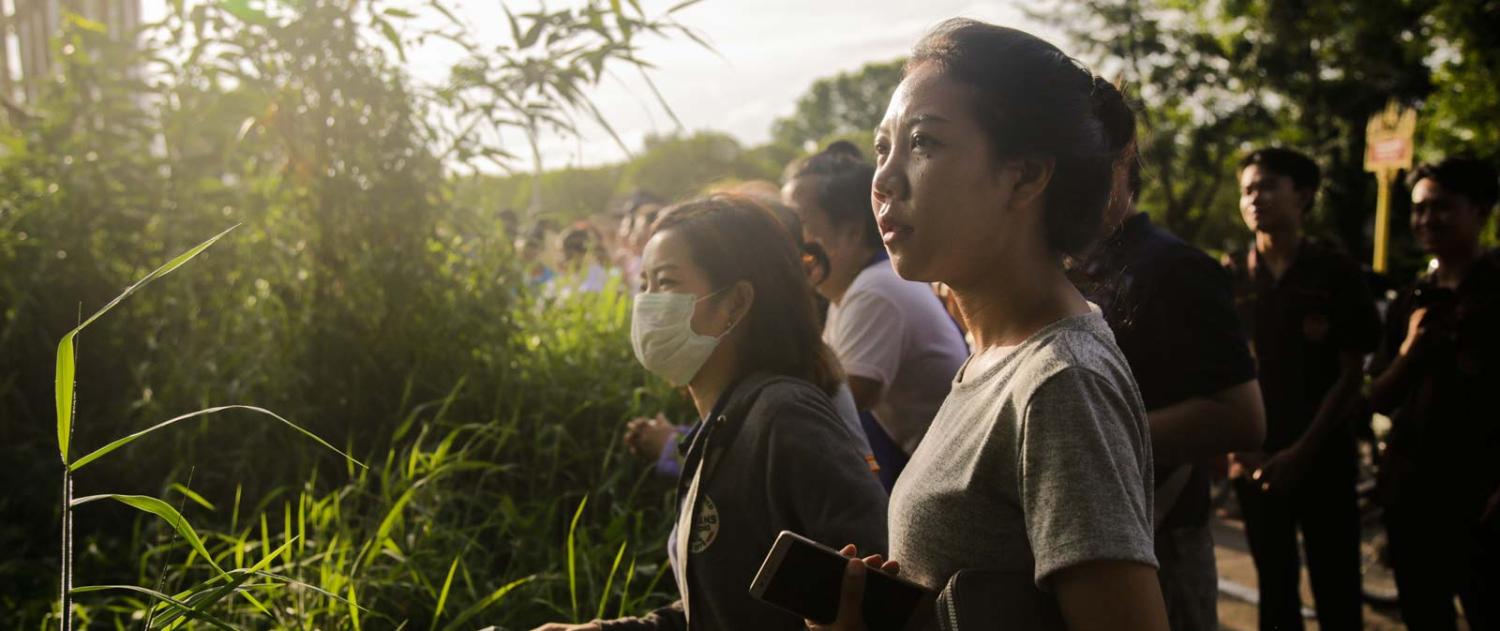The rescue last week of the Wild Boars boys soccer team trapped by floodwaters in a cave in Thailand’s north captured the world’s attention. Beyond the drama and difficulties of the rescue, the spotlight has also turned to Thailand’s “statelessness” problem.
Without citizenship, stateless people suffer from the denial of benefits and rights, including basic human rights.
Three members of the team, as well as their coach, are stateless ethnic minorities.
Officially, statelessness is defined by not being considered a national of any state under operation of its law. UNHCR estimates that at least 440,000 people are stateless in Thailand, yet the actual figure is thought to be around 3 million. Due to the very nature of statelessness – a lack of registration and documentation – actual figures are difficult to determine.
Of the stateless Wild Boars, the most background information is known about the coach Ekkapol Chantawong, who is a member of the ethnic Shan minority. Born in Myanmar and orphaned at a young age, he entered the monkhood in Thailand for nearly a decade, a common option for orphans without financial support.
Another Boar, Adul Sam-on, 14, was brought to Thailand by his parents at age 6 from the conflict-ridden Myanmar territory of Wa, in the hope of an education. Many reports have stated that Adul’s grasp of English was crucial to communications between rescue divers and the trapped soccer players.
Little information has been reported about the backgrounds of the other two stateless players, Pornchai Kamluang and Mongkhol Boonpiam; however, it has been reported that the three boys all have Thai ID cards, granting them some basic rights. The coach, however, has no legal status.
The Tham Luang cave, where the boys were trapped, is located in Chiang Rai province in the heart of the Golden Triangle where Myanmar, Thailand, and Laos meet. Almost half of all Thailand’s hill-tribe people, most of whom live in this region, are stateless. At the Ban Wiang Phan school, attended by Adul, 20% of students are stateless and more than half are ethnic minorities.
Without citizenship, stateless people suffer from the denial of benefits and rights, including basic human rights. In Thailand, stateless people cannot marry, get a job, passport, or bank account, are unable to travel freely between provinces, and face huge barriers to obtaining access to health and education. These restrictions lead to greatly narrowed opportunities, leaving the stateless at a higher risk of exploitation, particularly in the form of sex trafficking and abusive labour conditions.
Although many international and non-government organisations are working with the stateless of Thailand to help them access healthcare, education, and other basic rights, the root cause of all these issues comes back to a lack of citizenship.
The granting of citizenship to the stateless of Thailand is complex and slow. Although a large number of the country’s stateless are legally eligible for Thai citizenship, many fail to get it, mainly because they lack legal knowledge and face a corrupt and discriminatory system.
In late 2016, Thailand began to put measures in place to ease this problem, promising to grant nationality to 80,000 stateless people by allowing children born in Thailand to parents from ethnic minority groups, who are registered with the Ministry of Interior and who have lived in Thailand for more than 15 years, to apply for Thai nationality. Children born in Thailand to other non-resident parents may also apply if they have graduated from university or equivalent.
Thailand has also signed on to the UNHCR #IBelong campaign, vowing to end statelessness by 2024, and UNHCR has lauded the country’s “strong political will” to address this issue.
Reports have quoted the Director of the Bureau of Registration at the Thai interior ministry, Venus Sirsuk, as confirming that his office has been investigating granting citizenship to the four stateless Wild Boars; however, the process depends on the availability of evidence of their eligibility and the political will to allow the team members to bypass many of the hurdles involved in achieving citizenship. The existence of such political will is already being disputed.
Regardless, hundreds of thousands, possibly millions, remain waiting. A mere 20,000 stateless people have received citizenship since the implementation of initiatives in 2012. Although all reductions in the numbers of statelessness are laudable, at this pace it is difficult to see the problem of statelessness in Thailand being resolved by 2024.

